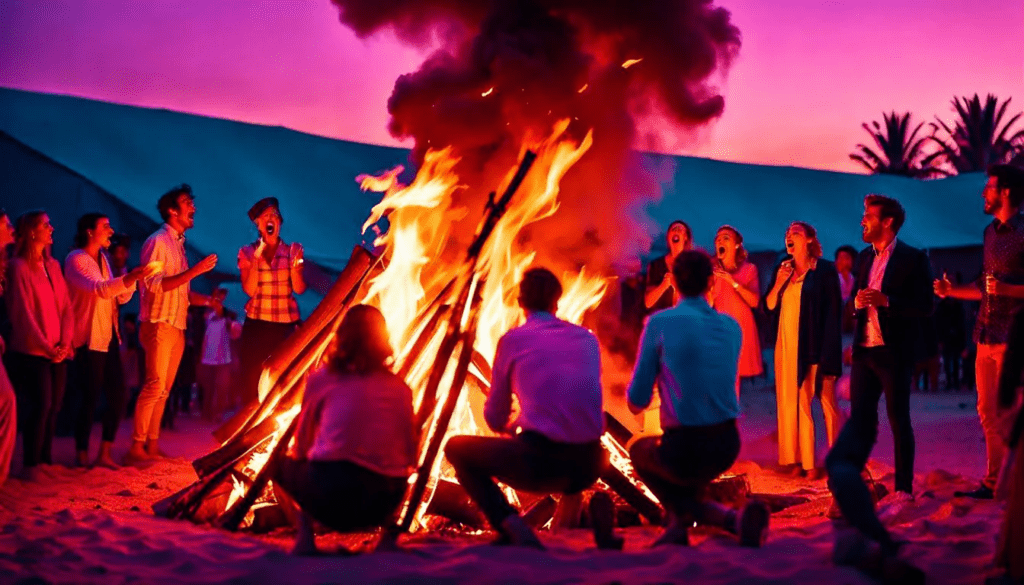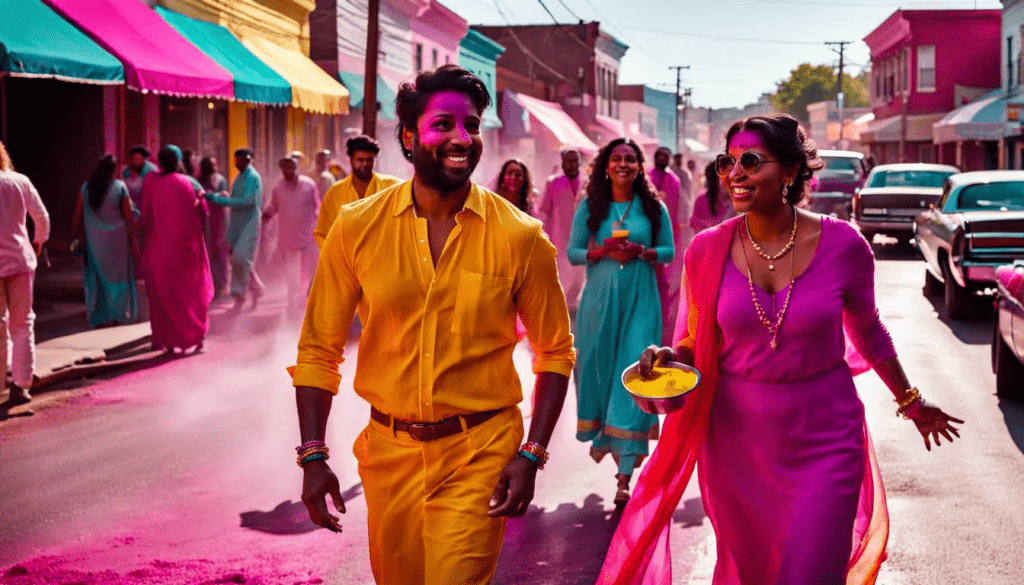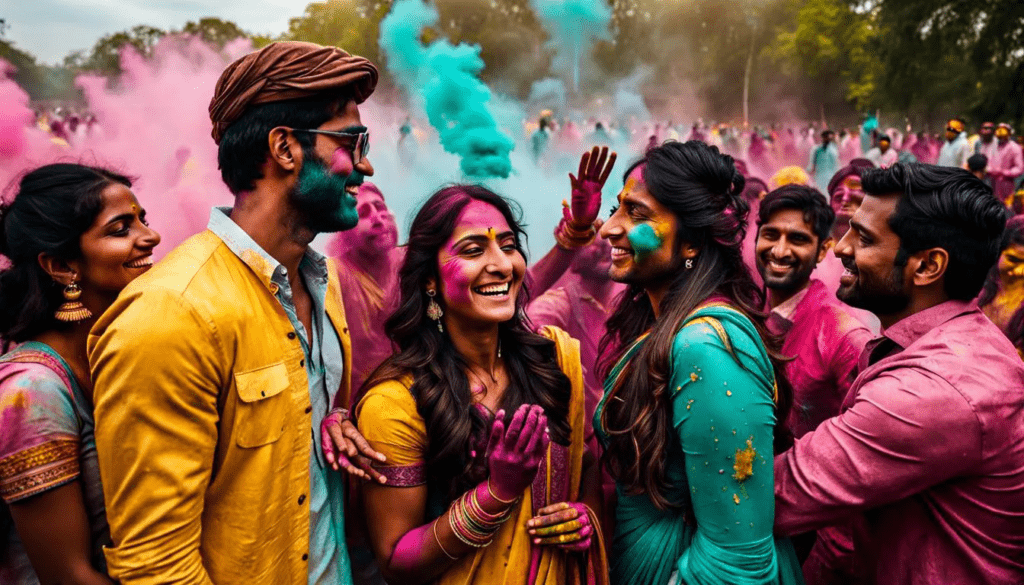American Holi Celebrations
Celebrating Holi in the United States: A Vibrant Tapestry of Culture and Tradition
The Essence of Holi
Holi, the vibrant Indian festival of colors, is celebrated with great fervor in the United States, bringing together communities to embrace the spirit of spring and the joy of life. This two-day celebration is a time for laughter, unity, and the rejuvenation of relationships, as the boundaries of caste, class, and age are momentarily set aside in a kaleidoscope of color and merriment.
The Holika Dahan: A Beacon of Bonfires
The night before Holi, the Holika Dahan ritual is observed with the lighting of bonfires. This act symbolizes the triumph of good over evil, as the community gathers around the flames, singing and dancing, creating a scene reminiscent of ancient rituals meant to purify the spirit.

Holi on College Campuses
Across the United States, college and university campuses become hotspots for Holi celebrations. Students and faculty alike don colorful attire and participate in the festivities, often organizing events that include the throwing of colored powders and water, reflecting the diverse cultural tapestry of the student body.

A Festival of Equality and Renewal
Holi is more than just a festival; it’s a celebration of equality and the renewal of relationships. The act of smearing color on each other is a symbolic gesture of breaking down barriers and embracing the essence of humanity, a message that resonates deeply within the multicultural fabric of American society.
The Legacy of Holi in America
The celebration of Holi in the United States is a testament to the enduring legacy of Indian culture within the American melting pot. It’s a vibrant expression of the shared human experience, where the joy and spirit of a festival from halfway around the world can bring together people of all backgrounds in a harmonious celebration.

Cultural Appropriation vs. Appreciation in American Holi Celebrations
Understanding the Dichotomy
The American celebration of Holi, while often seen as a vibrant and inclusive event, has faced criticisms regarding cultural appropriation. The festival’s adoption by various communities, especially in the context of college campuses, has sparked a debate on the line between cultural appreciation and appropriation.
Cultural appreciation is characterized by respectful engagement with and admiration for other cultures. In the context of Holi, this can manifest as attending cultural events, learning about the festival’s significance, and participating in a way that honors its traditions. However, when elements of a culture are taken out of context and used without understanding or permission, it can be perceived as appropriation.
The distinction between appreciation and appropriation is not always clear-cut, and it often depends on the perspective of the individuals involved. For instance, while some may view the widespread celebration of Holi as a testament to its cultural impact and inclusivity, others may see it as a form of cultural theft, particularly when the festival is commercialized or when its traditional significance is diluted.
It is crucial to recognize that cultural appropriation can have negative consequences, such as the erasure of the original culture’s identity and the commodification of their traditions. In contrast, cultural appreciation can lead to a deeper understanding and respect for diverse cultures, fostering a more inclusive and globalized society.
Ultimately, the American celebration of Holi serves as a reflection of the broader societal discourse on cultural borrowing. It is a reminder that while sharing and learning from different cultures are essential, it is equally important to do so in a respectful and informed manner. – USNEWSNBUZZ

Must Read Blogs:
- How Did Julie Andrews Lose Her Voice?
- Understanding the Potential Ban on TikTok: Insights Post House Advancements in the Aid Package
- Grammy Winner Star Mandisa dead at 47: A Legacy That Lives On
- Florida Communism Bill (House Bill 1557): Discussion and Controversy
- Former Florida governor and US senator Bob Graham passed away at 87.

